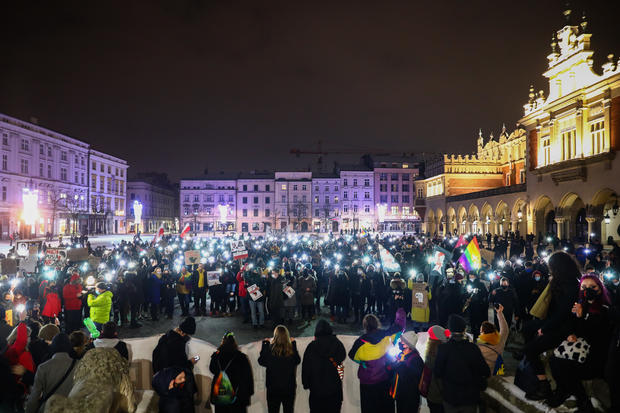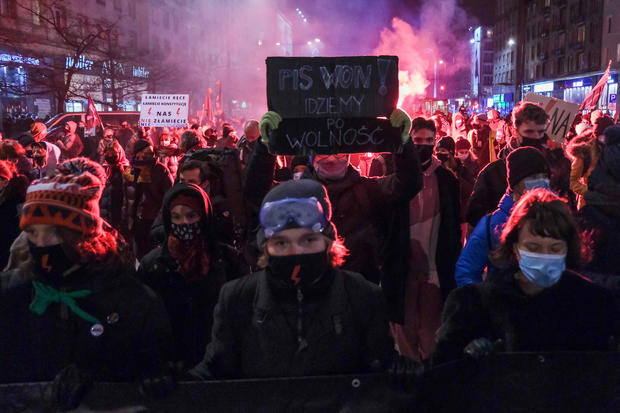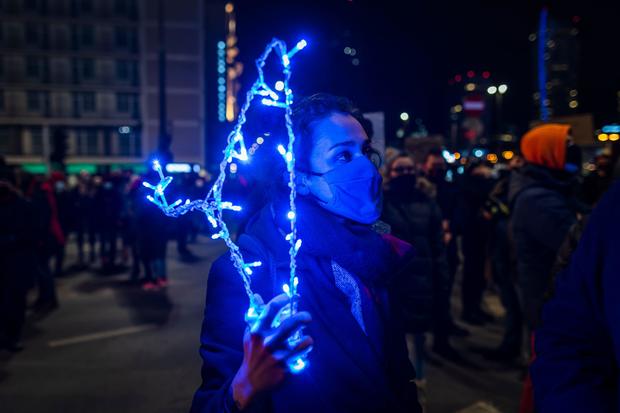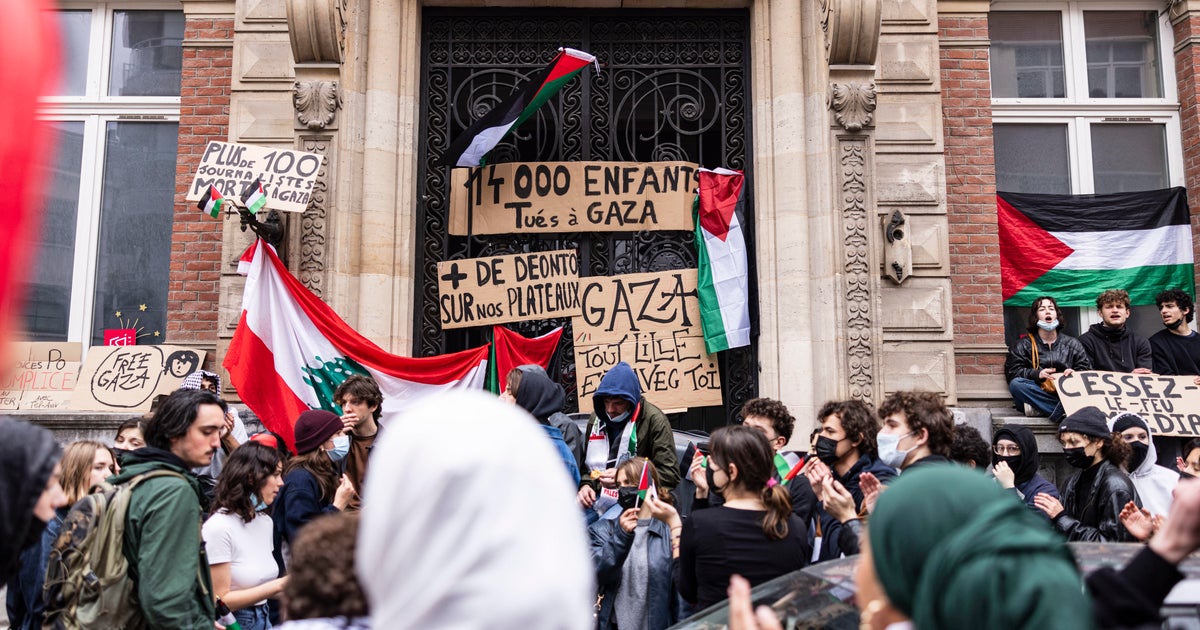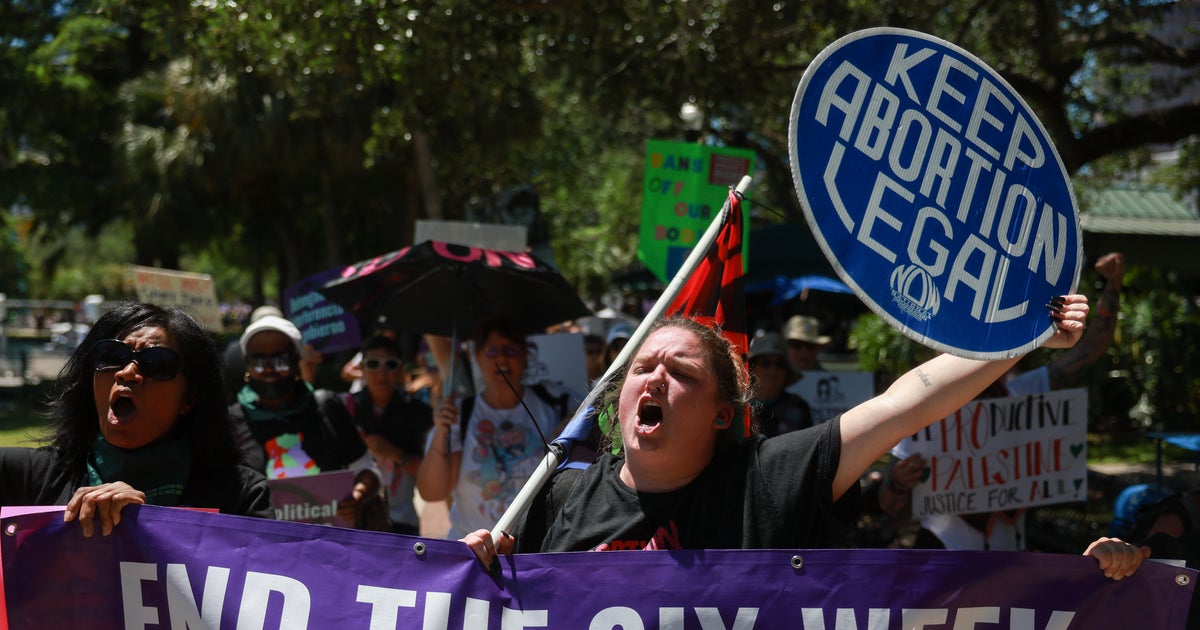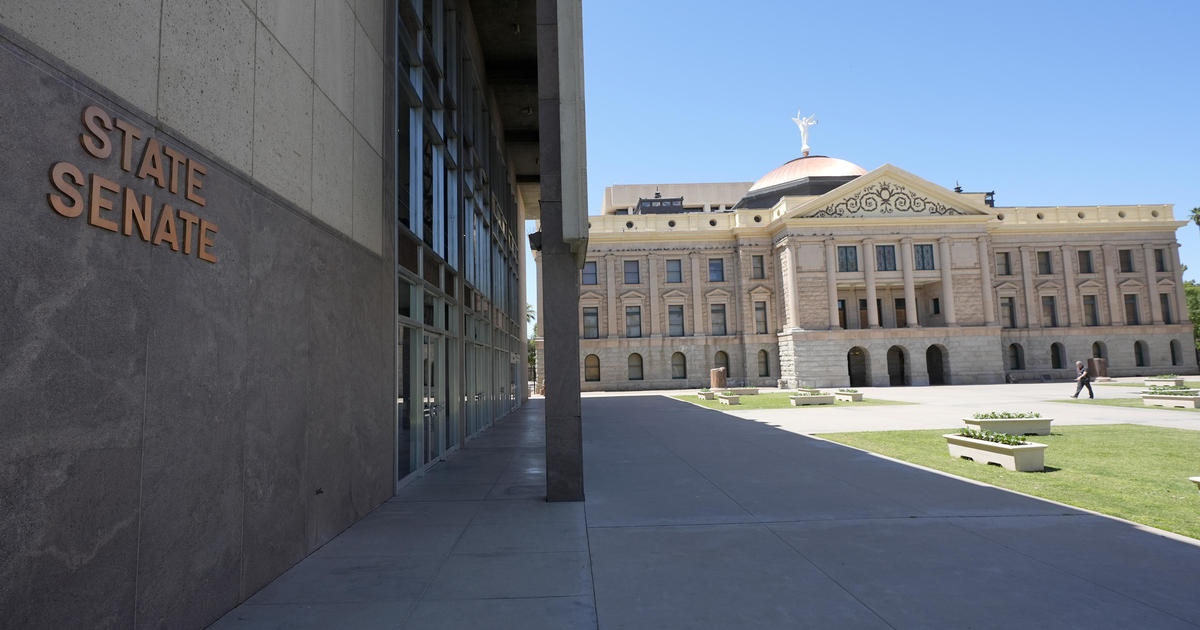Massive protests as Poland implements near-total ban on abortions
Poland's government implemented a constitutional court ruling on Thursday banning virtually all abortions in the country. The move drew a fierce reaction from activists and sparked huge street protests across the country of almost 38 million.
Poland already had some of the most restrictive abortions laws in Europe, permitting the procedure only in cases of rape or incest, if the mother's life is in danger or if the baby has severe congenital damage. The law put into practice on Thursday removed that last condition, making it illegal to abort even severely defective fetuses in Poland.
Human rights organizations have called the tightening of the laws tantamount to a total ban on abortions, and the anger on the streets over the move was visceral.
In Warsaw people took to the streets on Wednesday with burning torches and rainbow flags and held up banners reading "This Means War," "I Think, I Feel, I Decide," and "Hell for Women."
Protesters marched from the Constitutional Court to the headquarters of the ruling Law and Justice (PiS) party, whose members had pushed hard for the more restrictive laws. Protests were also held in other Polish cities including Łódź and Szczecin, despite a ban on assemblies due to the pandemic.
On Thursday, as protest marches continued around the country, Poland's Health Ministry issued a specific warning that the demonstrations were a risk of spreading the coronavirus.
Last October the country's Constitutional Court ruled that aborting severely disabled fetuses was "incompatible" with the Polish constitution, after a petition by more than 100 PiS deputies seeking the change in the law. The PiS party is closely allied with Poland's Catholic church, and bishops had earlier called for a total ban on abortions and praised the court's ruling.
It was on Wednesday that the government officially declared the law change legally valid, drawing tens of thousands of people into the streets, but the legislation came into effect on Thursday.
"We took to the streets really spontaneously as the anti-abortion law was published late in the evening, so we had little time to prepare and protests were organized only in a few places," activist Aleksandra Musil told CBS News on Thursday. "Today, they take place all over the country. I am organizing one myself in my town."
Warsaw's liberal Mayor Rafał Trzaskowski accused the government in a Facebook post of deliberately harming the state by publishing what he called the "pseudo-court's verdict against the majority of Polish women and Poles."
"It's not just women who are taking to the streets, it's the whole nation that has had enough," the former presidential candidate, who narrowly lost a July 2020 vote, declared.
"No law-abiding government should follow this verdict," Borys Budka, head of Poland's largest opposition party, the Civic Platform, said Wednesday.
The demonstrations were initially called on Wednesday night by the Strajk Kobiet (Women's Strike) movement and women's rights activist Marta Lempart, who urged Poles to: "Vent your anger today any way you can."
The group's Facebook page showed more protests being planned across the country at least through the end of the month.
Official figures suggest that there have been fewer than 2,000 abortions performed legally in Poland per year in recent years, but women's rights organizations estimate that about 200,000 Polish women terminate their pregnancies illegally every year, or go abroad to do so.
Activists fear the even tighter restrictions will drive more women to seek potentially dangerous illegal abortions, or force them to travel abroad for the procedure.
